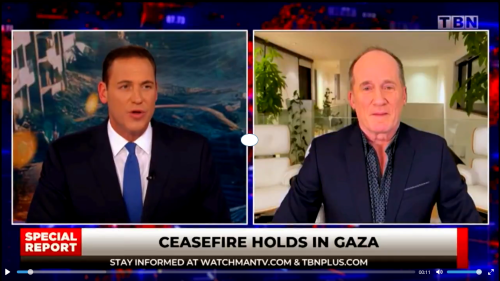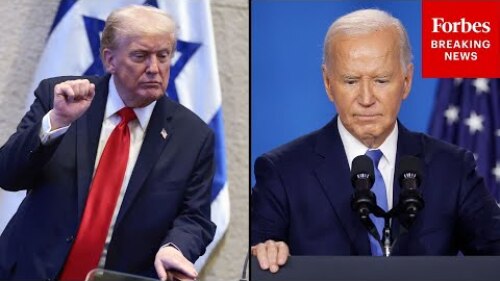Raymond Stock is a Shillman/Ginsburg Writing Fellow at the Middle East Forum and former Visiting Assistant Professor of Arabic and Middle East Studies at Drew University. He has a Ph.D. in Near Eastern Languages and Civilizations from the University of Pennsylvania.
Stock lived in Egypt for 20 years and was detained at Cairo Airport in December 2010 and deported back to the U.S. due to his 2009 Foreign Policy Magazine article criticizing then-Egyptian Culture Minister for his policies and anti-Semitism.
He is currently working on a biography of Egyptian Nobel laureate in literature, Naguib Mahfouz.
The following is RadicalIslam.org National Security Analyst Ryan Mauro’s interview with Mr. Stock:
Raymond Stock: Despite disingenuous platitudes about equality and human rights meant to fool infidels, the Muslim Brotherhood’s basic ideology is hostile to all non-Muslims, including Christians. Gradually, as sharia enforcement continues to grow under the new Islamist Constitution, Egypt’s Christians will fall under greater and greater legal and social pressure from the Muslim majority.
Worse, the MB’s Salafi allies, some of whom openly preach for the death and/or expulsion of Egypt’s Christians, will face few, if any, sanctions as they escalate their threats and increasing acts of violence against the Copts and other minorities from the Brotherhood regime.
And far worse still, the international community--led by President Barack Obama--is apt to continue its shameful silence in the face of Islamist terror against those minorities, as it has done during the ethnic cleansing of Iraq’s Christians, whose numbers have dropped by half in the past decade.
Needless to say, such silence is reserved mainly for the plight of Christians--no other group is so ignored by the world, despite the horror and the massive scale of the abuse (which stretches far beyond the Middle East into Nigeria and much of the rest of West Africa, through Ethiopia and Somalia, and to Pakistan and India, Indonesia, the Philippines and beyond).
Though [Muslim Brotherhood Egyptian President] Morsi may have lost popularity and may be incapable of winning reelection, the MB and their Islamist allies are very unlikely to leave power peacefully. That they would yield like true democrats after defeat in a future vote is the bland self-delusion of those who thought we should take a chance on the “moderate” Islamists -- no such category really exists. Only a concerted international and internal effort by a united opposition can have a chance of removing them, and even that comes at the likelihood of civil war.
Certainly, the West is not going to do it. The EU has just announced that it is going to give the openly undemocratic and anti-Semitic Morsi an emergency package of 5 billion dollars, and the IMF is probably going ahead with its 4.8 million loan this month. The US too is not about to stop aid and may even increase it, despite the uproar over the deficits. At the same time, the Qataris are increasing their aid with another 2.5 billion now, and will invest 18.5 billion over the next five years. The Saudis aren’t too far behind.
Morsi has also requested 3 billion from China for his nuclear program, which he will keep largely under wraps, and the Iranians are offering technical assistance for what is certainly going to be a drive to acquire nuclear weapons, something I have written about here. I have written considerably on the overall picture for Egypt under the MB here and here.
Mauro: Is there any way to stop the implementation of sharia law in Egypt now? Can the constitution be modified by a future parliament?
Stock: The answer to both questions is a qualified “No.”
The new Constitution removes the legal barriers to implementing sharia. How rapidly the new government wants to proceed depends upon political considerations. The MB may not want to completely frighten Western benefactors by taking it too far at this point, preferring a more gradual approach. They will remain under constant pressure not only from the more blatantly hard-line Salafis and also by the impatient militants in the MB, of which there are many.
Morsi was the hard-line ideological enforcer of the MB before he became president. His short-term considerations are more complicated now. In the medium-to-long term, he is apt to show more of his own deep-seated beliefs as he grows more confident that the MB’s seat in power is secure.
As for modifying the Constitution, though Morsi has offered to let changes be made after the recent referendum, future amendments will probably need to be approved by a two-thirds majority of parliament. Even if public sentiment might deny the Islamists a majority in the coming parliamentary elections--which remains unclear--the elections themselves might not be clean. It is unlikely that secularists would prevail in any attempt to amend it at all.
Mauro: If Morsi supports Hamas, why did he apparently pressure the group into a truce with Israel? Does this mean that we can indefinitely bribe the Brotherhood into restraining Hamas?
Stock: Morsi does support Hamas--but he is most concerned with building his base in Egypt--which, for the moment, requires that he maintain his vital links with the West, especially military aid from the United States and economic aid from Europe, which might be jeopardized by any sign that he might be considering war with Israel. He does not personally recognize Israel, but does accept the idea of a temporary truce, or hudna, with even a most hated enemy, to gain time in order to gather strength for confrontation in future.
Morsi felt so confident that he had fooled his Western benefactors by his role in arranging the recent truce in Gaza--which he and Hamas viewed as won on favorable terms for Hamas--that the day after he won Washington’s praise for it, he issued a decree awarding himself unprecedented dictatorial power at home.
And his analysis was correct--for neither the White House or the Europeans raised serious objections to his move, despite the fact that it totally negated the democratic promise of the Arab Spring and engendered massive, even violent opposition in Egypt. And so far it seems to have worked.
Mauro: A Pew poll from 2010 showed that a large majority of the Egyptian people supported implementing sharia law’s criminal punishments, including death sentences for apostates. But the Brotherhood barely defeated a secularist in the presidential election. How do you reconcile this?
Stock: I believe the Pew poll of December 2010 was accurate, but support for sharia--while certainly widespread--may be more superficial than the numbers might suggest. A few decades ago, under Gamal Abdel-Nasser, [these numbers] would have been unthinkable; a decade or two before that, they would have been unexceptional. No doubt conservative Islamist values are very much in vogue, and Egypt has, since antiquity, been a very religious society.
The decline in support for the Islamist parties--the MB and the Salafis--probably reflects their often-bizarre behavior in the parliament elected in late 2011-2012, which was ruled illegal and shut down last June. They are widely blamed for failing to stop the ceaseless social unrest, skyrocketing crime, declining tourism and investment and overall economic crisis that (all too predictably) followed the fall of Mubarak.
Though sharia is probably still the ideal of the majority, that may not be enough to motivate people to vote any longer. Only 32-33 percent of voters turned out for the referendum that approved the new, Islamist constitution. Yet it is highly unlikely there will be mass protests outside of the minority-based, secular-oriented National Salvation Front should Saudi-style sharia be enforced now in Egypt.
Ryan Mauro is RadicalIslam.org’s National Security Analyst and a fellow with the Clarion Fund. He is the founder of WorldThreats.com and is frequently interviewed on Fox News.






